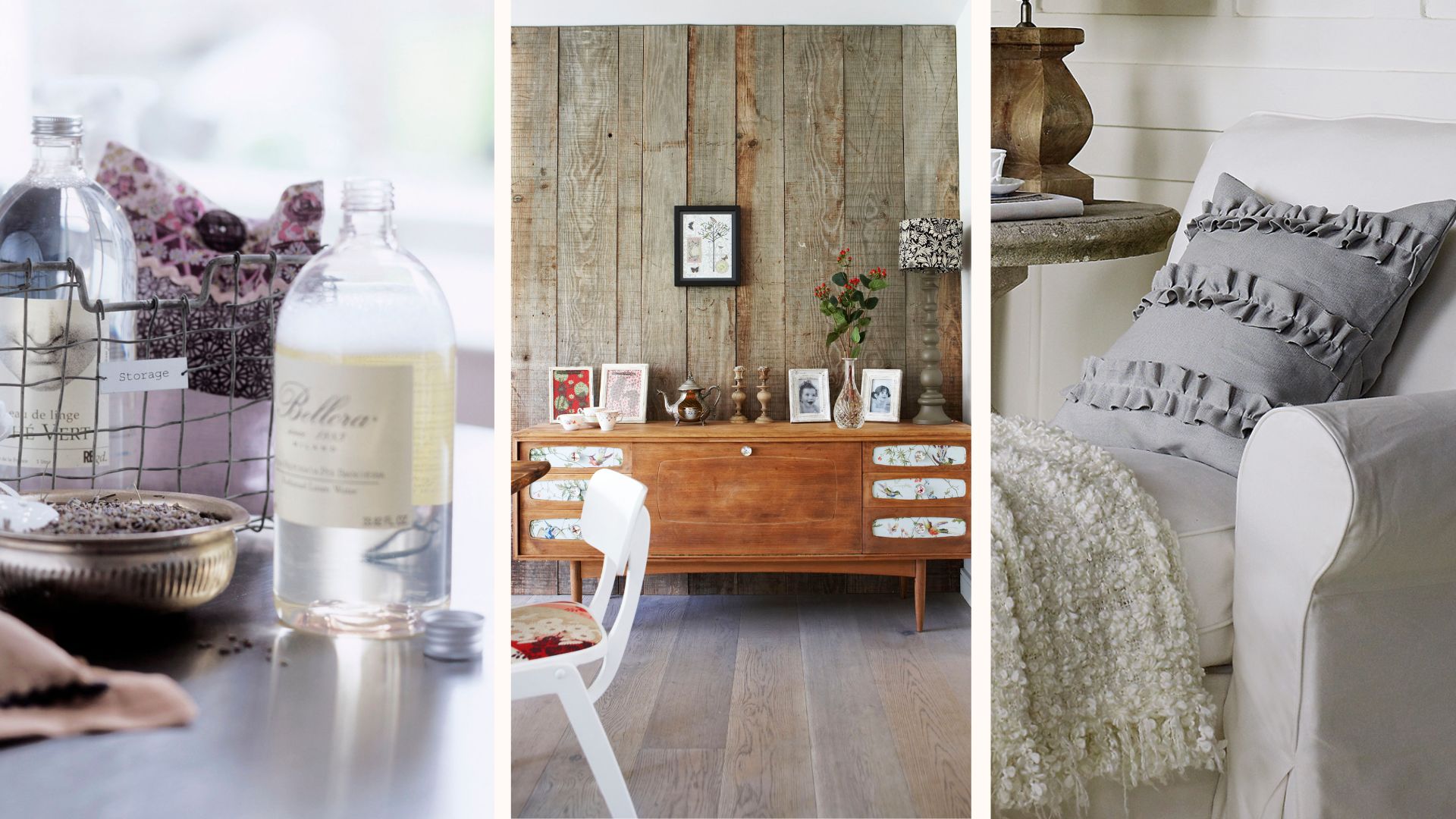
In today's busy world maintaining a tranquil home plays a significant role in alleviating stress. Thankfully, according to the experts, the simplest of changes hold the key to creating a stress-free home environment.
Our homes are our personal sanctuaries, the one place where we feel safe and nurtured but in a fast-paced world if the balance isn't right with our interiors even in the comfort of our own homes we can still feel overwhelmed by outside pressures.
Simple styling tricks and tweaks can be the key to unlocking a greater sense of calm in any room, because much like the daily habits to keep your homes clean and tidy often it's the little things that can make the biggest impact.
We talked to feng shui practitioners and interior designers to seek expert advice on how to create the ideal stress-free home environment. From calming color palettes and comforting textures to smart home organization ideas these simple changes can all go a long way.
Expert tips for creating a stress-free home
"What makes a calm environment?" asks Olga Trusova, designer, design consultant, and author of Calm Living. "I offer three primary requirements: (a) it soothes the senses, (b) it promotes balance, and (c) it makes life easier."
"Remember you can make any space more conducive to calm through small changes with big impact." With that thought in mind, here are eight simple ways to create a more soothing atmosphere in your own home.
1. Choose a calming color palette
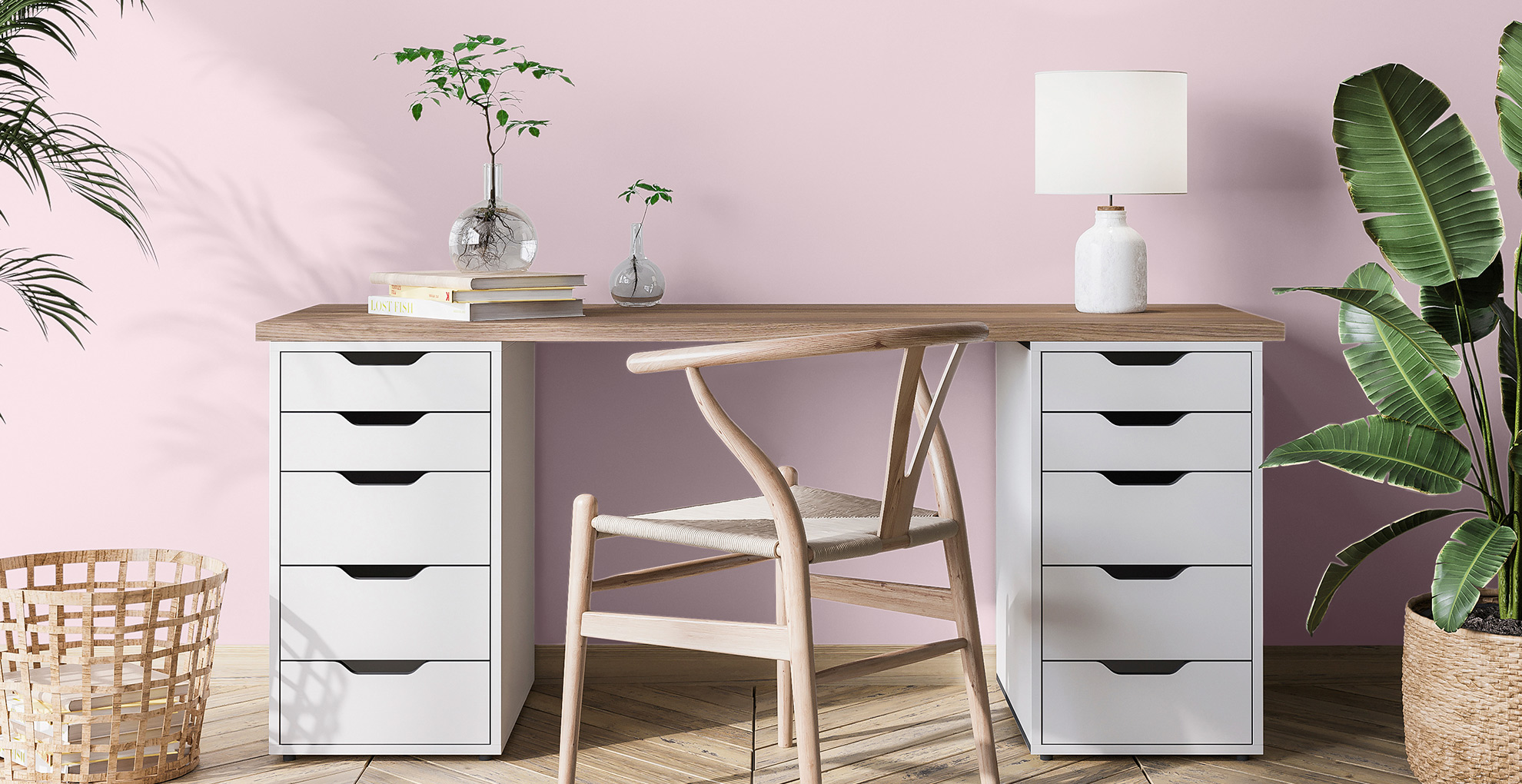
It goes without saying that the color palette of your home plays a huge part in how calm you feel within the space. And while the best paint color for your living room may differ from the best paint color for your bedroom they should always be colors that speak to you to make you feel at ease.
"The right colors in your home can have a huge impact on your state of mind, helping to reduce stress and be more mindful," says Sophie Smith, CEO of the mindful paint company Zhoosh. "Mindfulness is about being present and engaging in the moment. It is about recognizing and appreciating how you feel in the space around you."
"The easiest place to make this space work is the walls. A quick lick of paint can completely change a room and is a relatively cost-effective way to update things. Our paints are all calm, earthy, and inspired by nature, to provide a subliminally soothing backdrop, whatever your taste."
In the same way that paint can make a small room feel bigger, the way you use color is also important for creating a calming space. As Sophie explains: "The way colors are used in different areas can also be used to help lift a mood, drawing the eyes towards windows and away from darker corners. Make the most of any natural light you have."
2. Seek comforting textures
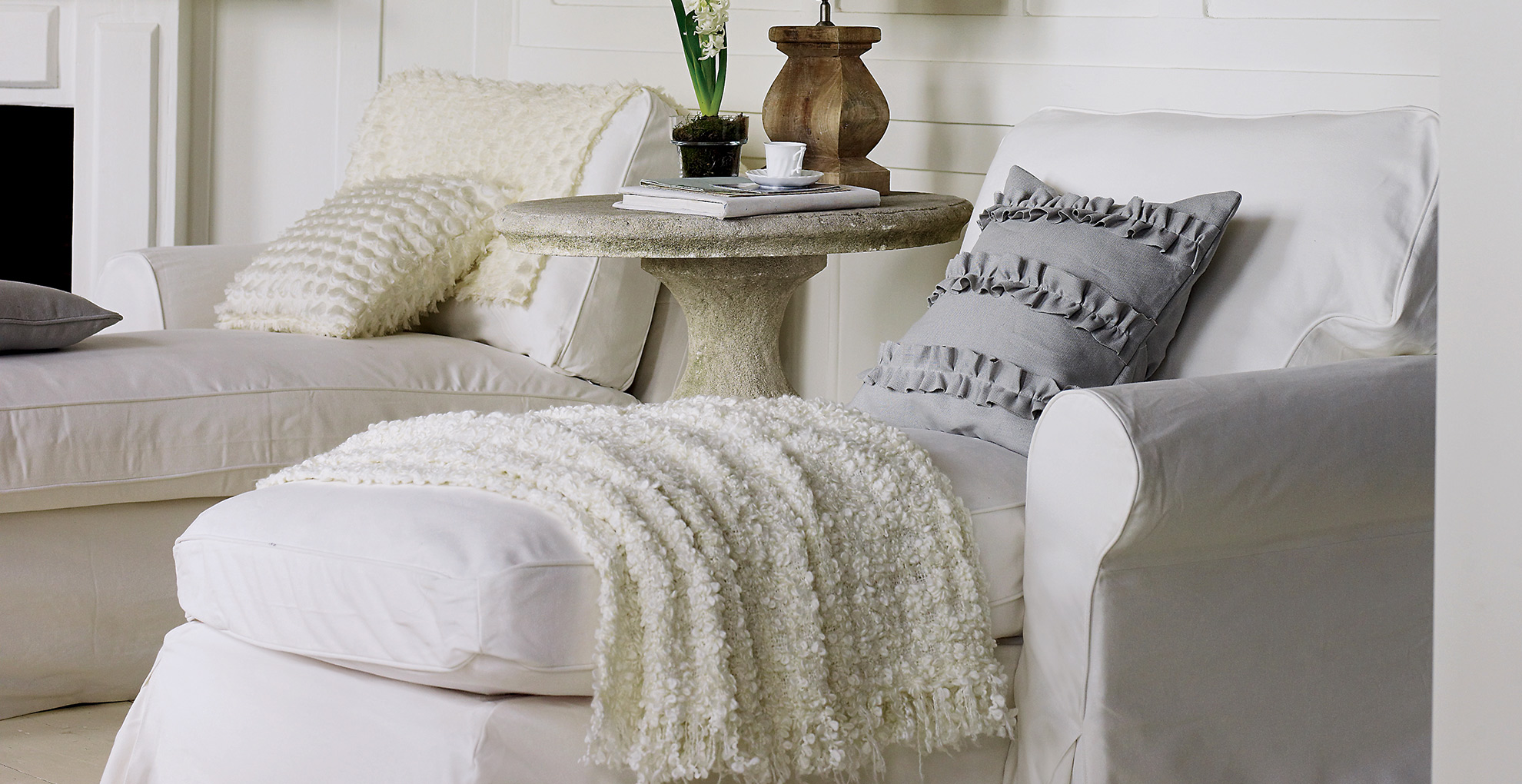
When it comes to creating an environment that feels all-encompassing it's essential to appeal to all the senses, including touch. Tactile textures and soft furnishings are integral for providing an element of touch to a decor. They also aid with the overall softness of the space, creating a more tranquil atmosphere by absorbing sound – and negative energy, according to experts.
“Soft furnishings help to slow energy from rushing around the room, to create a calm and convivial space," explains Zoë Vita James, a classically trained feng shui practitioner who works with Open Space Concepts. "Judicious use of floor rugs, cushions, and soft window treatments are all great for this. Just take care not to over-clutter the room, to keep it feeling airy and inviting."
3. Appeal to your sense of smell

In the same way that touch can influence how you feel in your surroundings scent also plays an integral part of feeling at ease. It's no coincidence the best spas all have a somewhat familiar scent of natural oils and ingredients that instantly make you feel grounded.
"Scent is one of the easiest ways to create a stress-free atmosphere," explains Lorriane Anderson, a spiritual teacher, entrepreneur, and author of the new book The Witch's Apothecary (available at Amazon). "I call this Perfuming the Home in my book. The Cleveland Clinic says essential oils act directly on the hypothalamus part of the brain, which is responsible for the hormonal release. They can uplift mood, reduce lethargy, and even boost metabolism."
"Essential oils also have energetic properties. Combine one to three oils, selecting them based on their spiritual intentions and use the blend in your diffuser, create sprays, mix them with herbs to create your own loose incense, or add them to simmer pots to fill your space with fragrance and good vibes," Lorriane advises.
"Try a mix of woods and florals for grounding, citrus and herbaceous scents for uplifting the mood, or heartier florals combined with either spice or resin to relax."
4. Keep sentimental value in sight
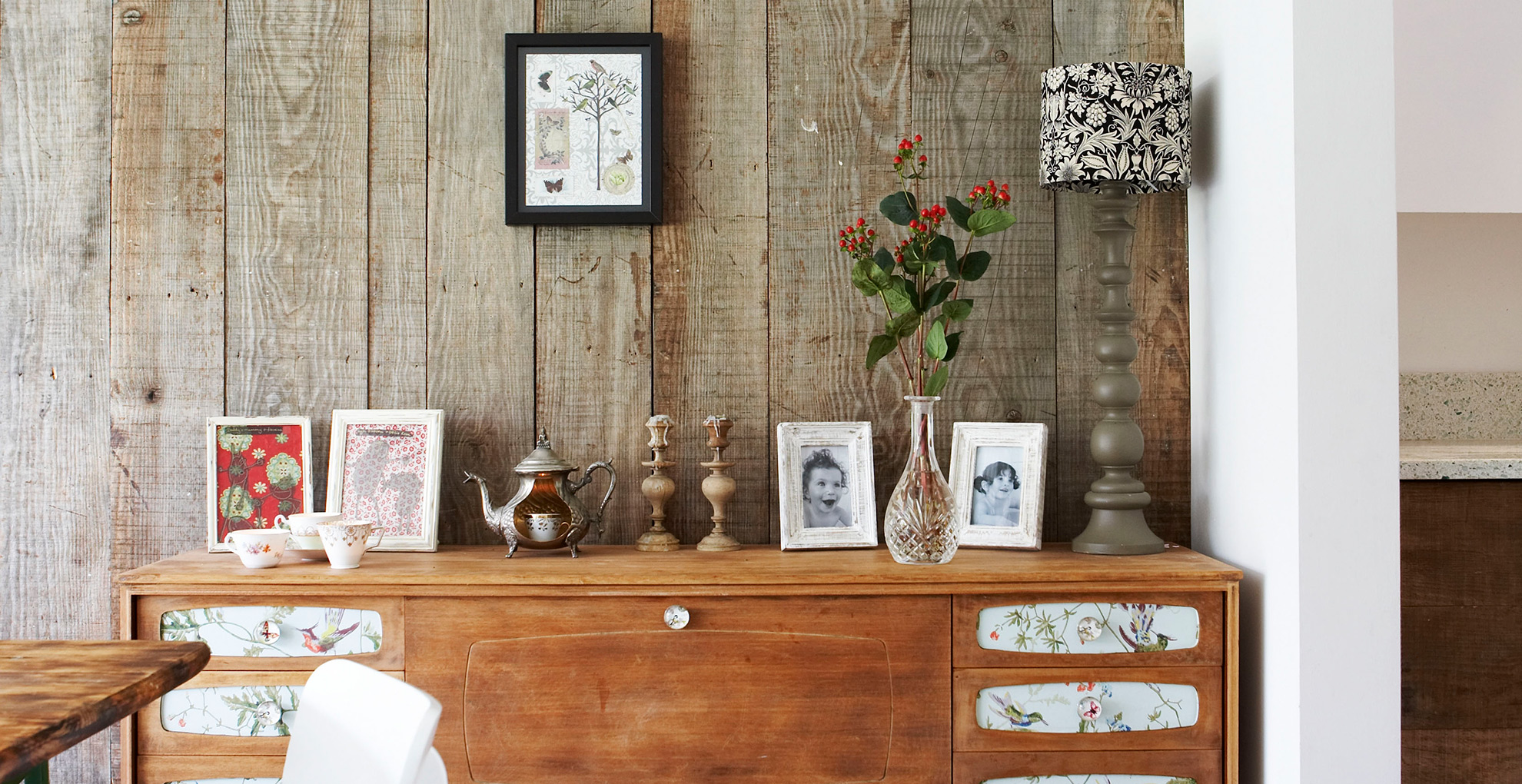
In Olga's book Calm Living: Simple Design Transformations to Fill your Space With Tranquility (available to buy at Amazon), she talks about embracing items of sentimental value. Rather than leaving treasured possessions boxed away to gather dust in the attic, the idea is to feel enriched by their presence to help create a sense of calm in the rooms you use on a daily basis.
"I would encourage you to experiment with displaying your sentimental items, almost gallery-like, instead of hiding them away," Olga says in her book. "Your items could go on top of a sideboard in the living room, on the wall, or on a mantel above the fireplace."
5. Find balance
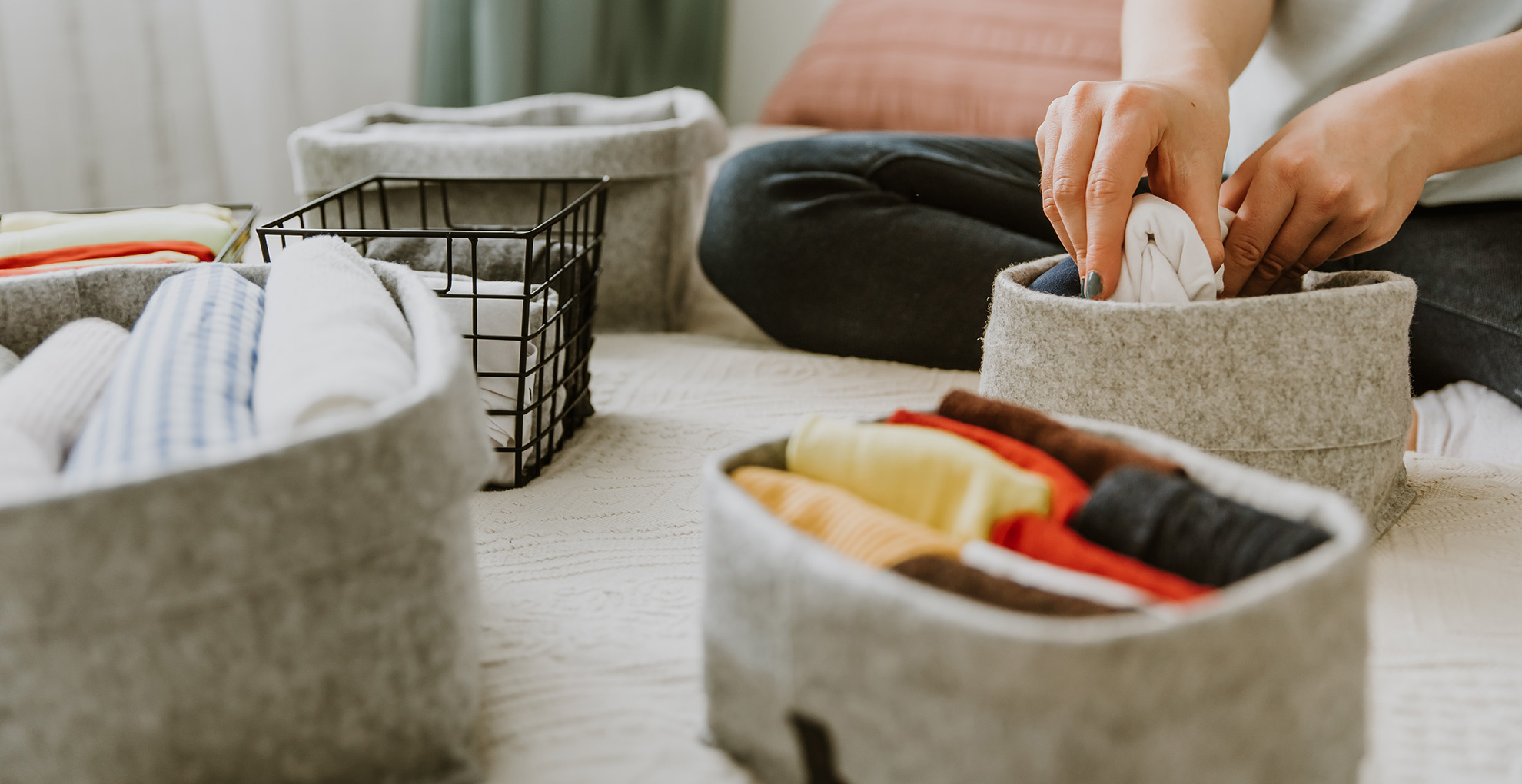
With any decor scheme, it's often about striking the right balance because too much is cluttered and chaotic while too little can feel empty and cold – neither of which is conducive to creating a sense of comfort. Start by decluttering your home to ensure no room is overfilled with unwanted items.
Moving from room to room, consider what needs to be there and what could be put into storage or rehomed. The best approach to feeling motivated to start decluttering is to take it one step at a time – feeling like it has to be done in one day will only add to the stress you might already be feeling.
"Simple changes to our space can offset the emotional weight of anxiety, sadness, and stress," says Olga. "Clutter-to-empty ratio, for example keeping shelves half empty, can have a tremendous effect, giving us breathing room. We can create more breathing room by borrowing a few concepts from the Japandi design style."
Start small by decluttering your book collection and finally build to a bigger task, like decluttering the bathroom to gradually streamline your home over the course of a few weekends.
6. Consider an alternative layout
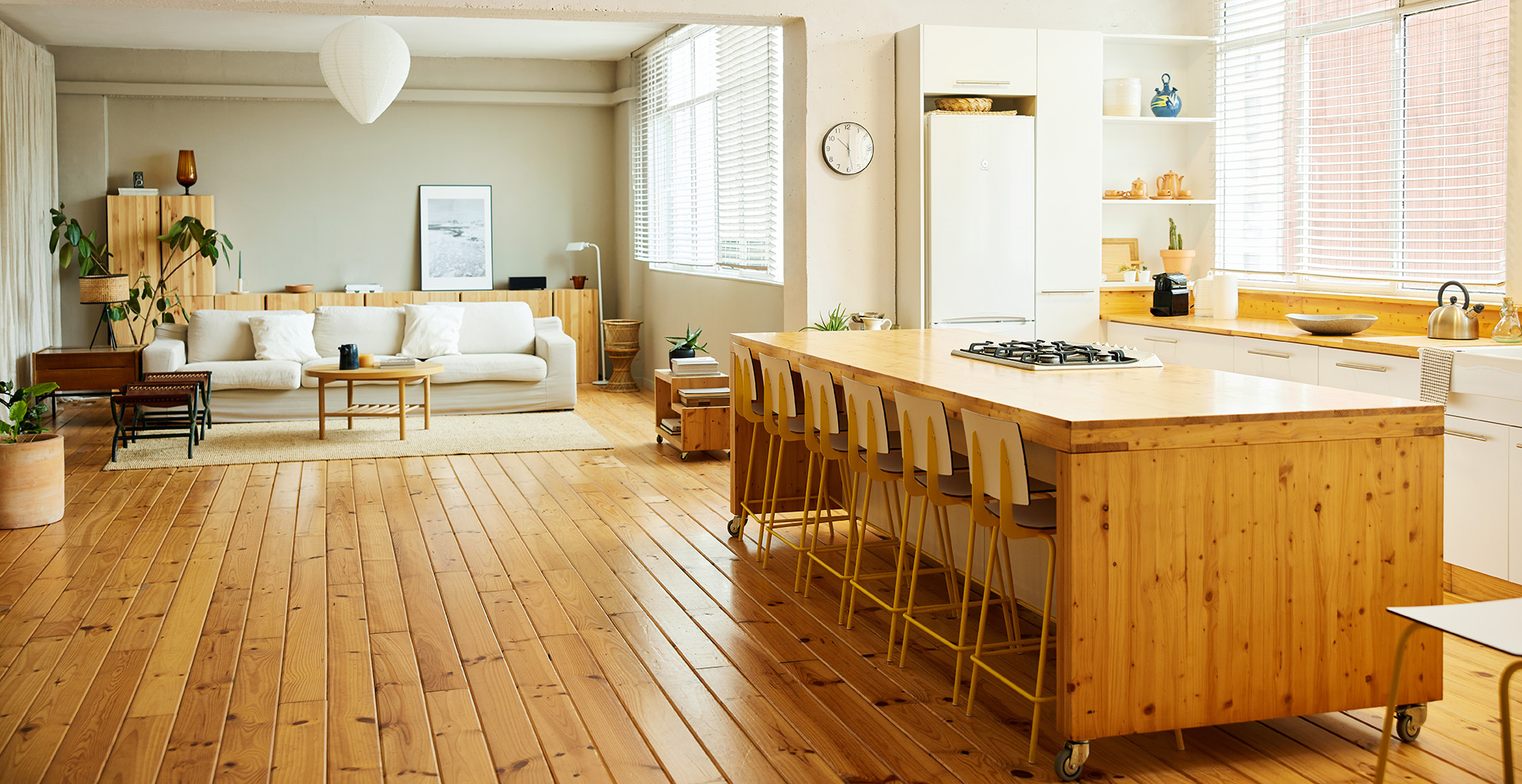
Consider rearranging the furniture to transform the aesthetic in any room. ”Flow into and around a room is also crucially important, and this is especially relevant in creating a relaxing space," says Zoe. “Sinuous lines are really important in feng shui to help you feel comfortable and relaxed; create a winding path through the room by arranging furniture in a way that takes you on a journey through the room, rather than directly from door to seat."
"Couches, console tables, bookcases as well as low floor cushions and poufs can help to direct this flow. Carefully placed floor rugs also help to zone different spaces in a room and encourage people to walk in a certain path."
“When choosing your seating placement in the room, be mindful of backs exposed to open areas and doorways," warns Zoe. "The best arrangement is where the seats most used have strong back support, meaning ideally a solid wall or at least chairs with tall backs – carvers or tall armchairs are great for this in the more exposed areas of the room. Do this to help you feel safe and secure."
Sophie adds her style tip: "Arrange your room around the windows, try not to cover them with heavy drapes or furniture." The concept is to draw your eyes to the light and views beyond. “Beautiful views from the room are vitally important," says Zoe, "as they activate the fortuitous energy in a room, and soften any negative."
7. Flood rooms with light
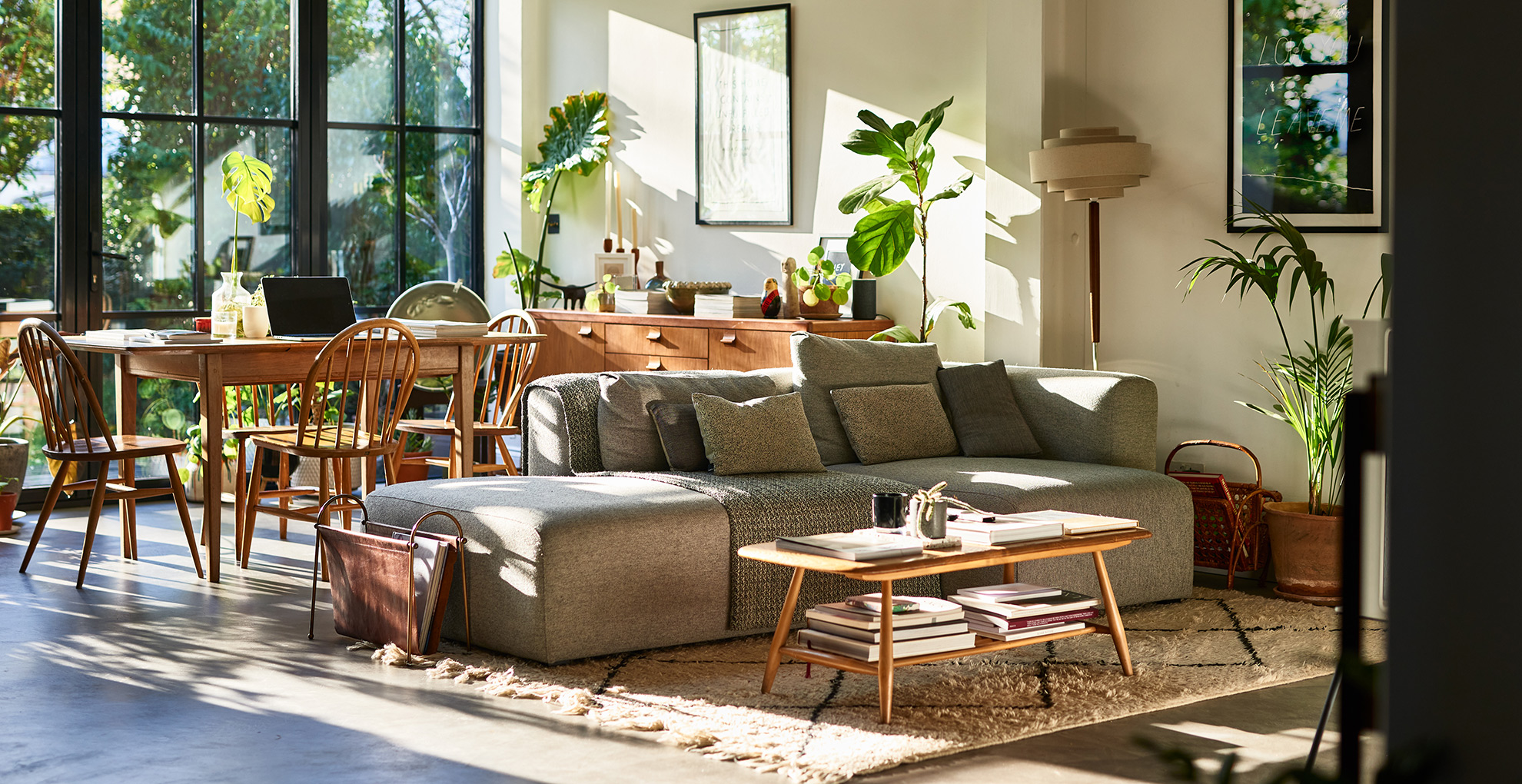
Seeking natural light is the most important aspect when looking at how to combat SAD (seasonal affective disorder) so it makes perfect sense that to create a happier, more grounding home environment you need to utilize light.
"Bright and airy spaces are generally considered best in feng shui, for abundance to prosper and to allow the space for people and relationships to come into your life," explains Zoe.
"If you don’t have an abundance of natural light, create lighting that imitates it," suggests Sophie. "Downward spotlights are great at flooding a room with brightness, but they can feel a little harsh. Mix it up with lamps in the darker corners, wall lights, and even hanging pendant lights to create warmth and coziness."
8. Welcome nature indoors
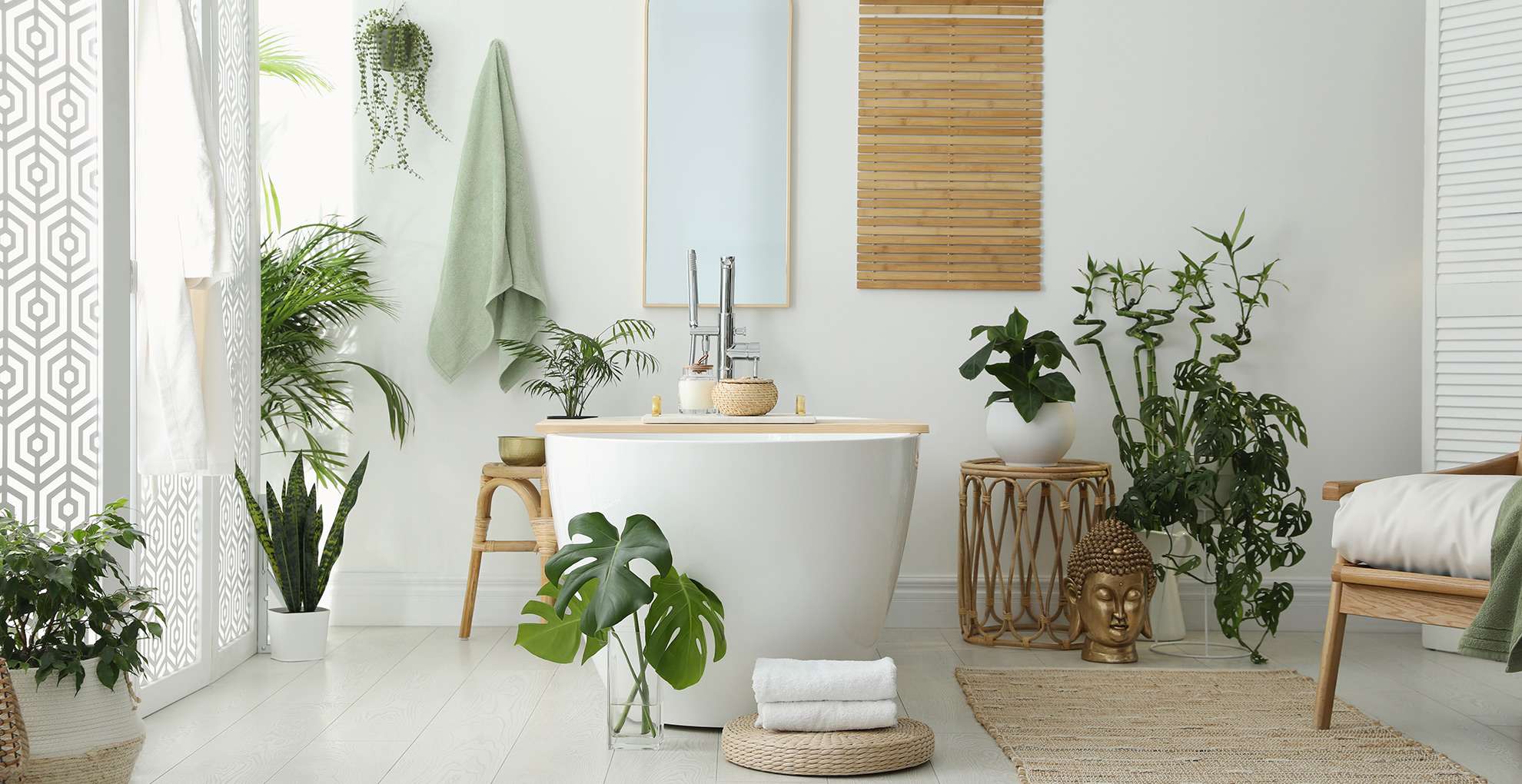
There's a reason sage green and forest green have both been hugely significant interior color trends in recent years – they provide a calming backdrop in our homes to balance our busy lives. The close association with nature is the main reason because nature has a calming effect on all of us.
"The natural world offers us endless inspiration for calm design," explains Olga. "a simple way to bring the outside in is to fill your space with plants. I recommend choosing a variety of Low-maintenance plants – snake plant, Monstera, ficus, bird-of-paradise, fiddle-leaf fig tree, and succulents."
"Filling your space with greenery not only literally brings the outside in but also inspires at eye level and promotes you to incorporate other nature-inspired colors, textures, and materials into your space."
If plants feel too overwhelming, start smaller. “Enliven your room with fresh flowers as a beautiful finishing touch," suggests Zoe. "They reflect the care you feel about your space."







